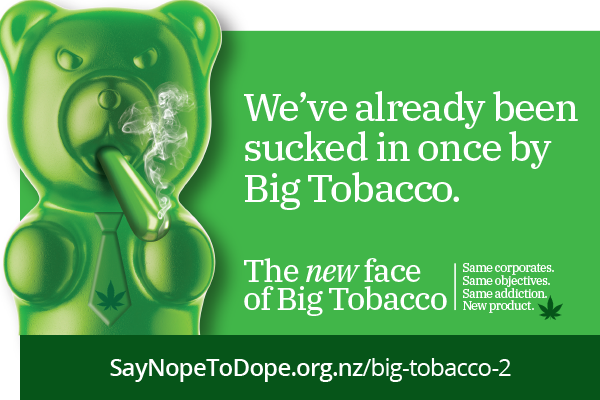Mother Jones (San Francisco), January 5, 2019
Family First Comment: Tell Your Children takes a sledgehammer to the promised benefits of marijuana legalisation, and cannabis enthusiasts are not going to like it one bit.
And we’ve invited the author to New Zealand! 🙂
Three extracts
Tell Your Children takes a sledgehammer to the promised benefits of marijuana legalization, and cannabis enthusiasts are not going to like it one bit.
The book was seeded one night a few years ago when Berenson’s wife, a psychiatrist who evaluates mentally ill criminal defendants in New York, started talking about a horrific case she was handling. It was “the usual horror story, somebody who’d cut up his grandmother or set fire to his apartment – typical bedtime chat in the Berenson house,” he writes. But then, his wife added, “Of course he was high, been smoking pot his whole life.”
Berenson, who smoked a bit in college, didn’t have strong feelings about marijuana one way or another, but he was skeptical that it could bring about violent crime. Like most Americans, he thought stoners ate pizza and played video games – they didn’t hack up family members. Yet his Harvard-trained wife insisted that all the horrible cases she was seeing involved people who were heavy into weed. She directed him to the science on the subject.
* * * * *
Over the past couple of decades, studies around the globe have found that THC – the active compound in cannabis – is strongly linked to psychosis, schizophrenia, and violence. Berenson interviewed far-flung researchers who have quietly but methodically documented the effects of THC on serious mental illness.
A 2002 study in BMJ (formerly the British Medical Journal) found that people who used cannabis by age 15 were four times as likely to develop schizophrenia or a related syndrome as those who’d never used. Even when the researchers excluded kids who had shown signs of psychosis by age 11, they found that the adolescent users had a threefold higher risk of demonstrating symptoms of schizophrenia later on.
These studies are hardly Reagan-esque, drug warrior hysteria. In 2017, the National Academies of Sciences, Engineering and Medicine issued a report nearly 500 pages long on the health effects of cannabis and concluded that marijuana use is strongly associated with the development of psychosis and schizophrenia. The researchers also noted that there’s decent evidence linking pot consumption to worsening symptoms of bipolar disorder and to a heightened risk of suicide, depression and social anxiety disorders: “The higher the use, the greater the risk.”
Given that marijuana use is up 50 percent over the past decade, if the studies are accurate, we should be experiencing a big increase in psychotic diseases. And we are, Berenson argues. He reports that from 2006 to 2014, the most recent year for which data is available, the number of ER visitors co-diagnosed with psychosis and a cannabis use disorder tripled, from 30,000 to 90,000.
* * * * *
Before talking to Berenson, I didn’t realize it was possible to smoke your way to the ER. I smoked plenty of weed in high school and so did all my friends, and none of us jumped off a balcony or killed anyone – we could barely get off the couch. But the marijuana sold today is not what we smoked, which at 1 percent to 2 percent THC was the equivalent of smoking oregano. Today’s weed is insanely more potent, as are products like “wax” and “shatter” – forms of butane hash oil designed to be vaped or dabbed that come pretty close to 100 percent THC. And these high-potency products usually contain very little CBD oil, the ingredient in cannabis that’s supposed to account for many of its supposed health benefits.
These potent products can cause hallucinations, restlessness, and, as anyone who’s smoked even weak pot is familiar with, paranoia. After reading Berenson’s book, I fact-checked it a bit, and inadvertently discovered all sorts of websites advising pot users on how to manage their paranoia and ride out the psychotic effects. I also found plenty of news stories about bad trips on pot. Such incidents are typically treated jokingly. “But a lot of the time it turns out not to be a joke,” Berenson told me. “A lot of the time it’s a 22-year-old guy who maybe has some history of aggression, and he winds up throwing himself off the balcony or beating up his girlfriend.”
Paranoia and psychosis make people dangerous, so rising use of a drug that causes both would be expected to increase violent crime, rather than reduce it as pot advocates claim. Berenson looked at data for the four states that legalized weed in 2014 and 2015 – Oregon, Washington, Alaska, and Colorado – and calculated a combined 35 percent increase in murders in those states from 2013 to 2017, compared with a 20-percent rise nationally. This “isn’t a statistical anomaly,” Berenson writes. “It’s real.”
The role of weed in rising violent crime rates in legalization states is a hotly contested question, especially in Colorado, where murders in Denver are at a 10-year high. Berenson admits he can’t say for sure whether those upswings are due to legal weed, but the raw data, he says, definitely contradicts advocates’ claims: “What I want people to stop saying is that legalization reduces violent crime. It doesn’t.”
Tell Your Children rounds out the crime stats with grisly stories of people who commit suicide or kill their children while high on pot, starting with the story of an Australian woman who, in the throes of cannabis-induced psychosis, stabbed eight kids to death – seven were hers. That’s a super-extreme case, but heinous crimes are not all that uncommon. Consider Texas: In 2017, Berenson told me, “2 percent of the state probably smokes marijuana every day, and 30 percent of the deaths from child abuse or neglect were committed while people were using. And that’s a bad number. There’s no way around it.”
https://www.motherjones.com/politics/2019/01/new-york-times-journalist-alex-berenson-tell-your-children-marijuana-crime-mental-illness-1/






